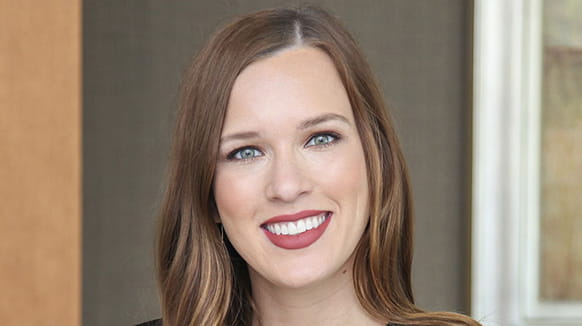While the U.S. Department of Justice (DOJ) has identified and pursued a variety of fraud schemes and activities related to COVID-19 (such as sales of fake testing kits and PPE, price gouging, and fraudulent offers for free COVID-19 testing in order to obtain Medicare beneficiary information that is used to submit false medical claims), several recent cases involving laboratory testing demonstrate that this is a key area of healthcare fraud and anti-kickback enforcement during the pandemic.
In March, the DOJ issued a series of communications related to its commitment to detecting, investigating, and prosecuting fraud related to the pandemic.1 Although kickbacks for COVID-19 tests and bundling were not specifically mentioned in the DOJ memos, these activities have been a focus of recent healthcare fraud and anti-kickback enforcement related to COVID-19. Specifically, the DOJ issued press releases related to three cases between March 30, 2020 and June 9, 2020:
- In United States v. Santos, a marketing company owner was charged with soliciting and receiving bribes and kickbacks on a per-test basis in relation to COVID-19 and genetic cancer screening tests. Specifically, Mr. Santos allegedly agreed to be paid kickbacks on a per-test basis for submitting genetic cancer screening tests to diagnostic testing facilities, regardless of medical necessity. When the COVID-19 pandemic escalated, Mr. Santos agreed to be paid kickbacks on a per-test basis for COVID-19 tests, provided that those tests were bundled with a more expensive respiratory pathogen panel (RPP) test, which does not identify or treat COVID-19. In its press release discussing the case, the DOJ noted that this behavior was especially dangerous due to the then-scarcity of reliable COVID-19 testing.2
- Similarly, in United States v. Parris, an office manager allegedly paid, solicited and received illegal kickbacks in exchange for referring Medicare patients for cancer genetic (CGX) testing and COVID-19 tests bundled with more expensive RPP tests. Specifically, the officer manager, Ms. Hoobler, and her co-conspirators allegedly collected Medicare patient information and swabs by having Medicare beneficiaries complete genetic test kits, without regard to their medical necessity, and obtained doctors’ orders for CGX testing for those beneficiaries by paying illegal kickbacks to co-conspirators at telemedicine companies. Ms. Hoobler also allegedly received illegal kickbacks in exchange for sending the completed CGX swabs and doctors’ orders to a clinical diagnostic laboratory. When the COVID-19 crisis intensified, Ms. Hoobler allegedly agreed to be paid kickbacks on a per-test basis for COVID-19 tests bundled with RPP tests. In its press release, the DOJ stated “let this arrest be a warning that our agents remain vigilant in our fight against healthcare fraud.”3
- Finally, in United States v. Schena, the president of a medical-technology company was charged in connection with his alleged participation in schemes to mislead investors, manipulate the company’s stock price, and conspire to commit healthcare fraud in connection with the submission of false and fraudulent claims for blood allergy and COVID-19 testing. Mr. Schena and others allegedly paid kickbacks and bribes to recruiters and doctors to run an allergy screening test for 120 allergens on every patient regardless of medical necessity, and, then, made numerous misrepresentations to potential investors about the company’s allergy test sales, financial condition, and future prospects. Mr. Schena and others also allegedly issued press releases and tweeted about partnerships with Fortune 500 companies, government agencies, and public institutions without disclosing that such partnerships either did not exist or were of de minimis value. In March 2020, Mr. Schena and others allegedly made false claims concerning the company’s ability to provide accurate, fast, reliable, and cheap COVID-19 tests in compliance with state and federal regulations and made numerous misrepresentations to potential investors about such tests and the company’s future prospects for COVID-19 testing. According to the DOJ press release, the company’s stock price doubled in mid-March, but Mr. Schena and others never disclosed that there were questions about the validity of the company’s data and the accuracy of its COVID-19 test. The DOJ noted in its press release that this case represents the first securities fraud prosecution related to the COVID-19 pandemic brought by the DOJ and stated that “[i]nvestigating COVID-19 fraud scams billed to federal health programs – such as those charged here – are a top priority for our agency.”4
While regulatory agencies have issued various guidance, waivers, and other flexibilities during the COVID-19 public health emergency (PHE), the pandemic has also brought additional questions and regulatory complexity, particularly for laboratories and others involved in the COVID-19 testing process. For example, the Centers for Medicare and Medicaid Services (CMS) changed the Medicare payment rules during the PHE to provide payment to independent laboratories for specimen collection from beneficiaries who are homebound or inpatients not in a hospital for COVID-19 testing under certain circumstances, as well as payment for COVID-19 tests without the requirement of an order from a treating physician or non-physician practitioner.5 In addition, as discussed in our Client Alert, effective March 1, 2020, the Secretary of the Department of Health and Human Services issued nationwide blanket waivers of certain Stark Law regulations related to COVID-19 purposes, and the Office of Inspector General issued a policy statement regarding its intention to exercise enforcement discretion not to impose administrative sanctions under the federal Anti-Kickback Statute for certain remuneration related to COVID-19 that is covered by the Stark Law blanket waivers.
Further, traditional healthcare fraud and anti-kickback enforcement actions unrelated to COVID-19 continue, including those involving laboratories. For example, the DOJ announced a recent settlement for $12 million with a laboratory conducting drug testing, alleging kickbacks for urine testing referrals.6 In addition, since March 1, 2020, the DOJ announced at least nine healthcare fraud and abuse actions involving laboratories and has continued pursuing “Operation Brace Yourself / Operation Double Helix,” which was initiated last September as one of the largest healthcare-fraud-enforcement schemes to date, with over $1.7 billion collected from unlawful schemes involving genetic testing, braces, pain creams, and other items. Finally, this year saw what is believed to be the first conviction under the Eliminating Kickbacks in Recovery Act (EKRA). As discussed in a previous client alert, EKRA was introduced in 2018 to prohibit receiving or offering remuneration in exchange for referrals to a recovery home, clinical treatment facility, or laboratory.7 Notably, EKRA’s broad scope is not limited by the type of payor, extending to both governmental and commercial insurers. The EKRA enforcement action involved an office manager of a substance abuse treatment clinic soliciting kickbacks from a toxicology laboratory in exchange for urine drug testing referrals.8
Though the current PHE has created uncertainty and made regulatory enforcement difficult to predict in many ways, laboratories and other healthcare companies should continue to ensure that their compliance programs remain robust and focused on identifying and remediating healthcare fraud and abuse. This could include, for example, performing a careful evaluation of financial arrangements with employees and referral sources, as compensation structures that vary based on the number of referrals, the number of tests performed, or the amount collected are potential targets for enforcement.
For questions on healthcare fraud enforcement or the information contained in this article, please contact a member of our Healthcare and Life Sciences practice group.
* The authors would like to thank summer associates Audrey Crowell and Bilal Sheriff for their contributions to this article.
1 See March 16 Memo, March 18 Memo, March 19 Memo, March 24 Memo, and March 24 Task Force Memo.
2 DOJ Press Release (March 30, 2020); available at https://www.justice.gov/usao-nj/pr/georgia-man-arrested-orchestrating-scheme-defraud-health-care-benefit-programs-related.
3 DOJ Press Release (May 15, 2020), available at https://www.justice.gov/usao-mdfl/pr/georgia-woman-arrested-role-scheme-defraud-health-care-benefit-programs-related-cancer.
4 DOJ Press Release (June 9, 2020), available at https://www.justice.gov/opa/pr/medical-technology-company-president-charged-scheme-defraud-investors-and-health-care-benefit.
5 CMS, Laboratories: Medicare Flexibilities to Fight COVID-19 (updated April 29, 2020), available at https://www.cms.gov/files/document/covid-19-laboratories.pdf.
6 Department of Justice Press Release (July 20, 2020), available at https://www.justice.gov/usao-wdwa/pr/doj-settles-false-claims-act-allegations-against-drug-testing-lab-operations-tacoma-and.
7 See Client Alert available at https://www.haynesboone.com/publications/differences-and-similarities-between-aks-and-ekra.
8 DOJ Press Release (Jan. 10, 2020), available at https://www.justice.gov/usao-edky/pr/jackson-woman-pleads-guilty-soliciting-kickbacks-making-false-statements-law.


